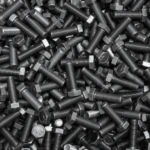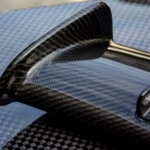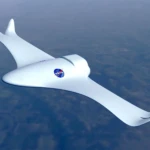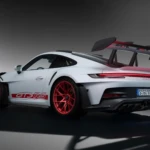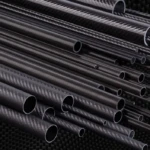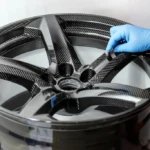Elon Musk Advocates for Ending EV Tax Credits: Implications for the Industry and the Role of Advanced CNC Machining
Elon Musk, the high-profile CEO of Tesla, has recently voiced his support for eliminating federal tax credits for electric vehicles (EVs), sparking heated debates across the industry. While his stance questions the long-term viability of subsidies, it also signals a shift toward cost-efficient, self-sustaining EV production. In this evolving landscape, automakers and component manufacturers are adapting rapidly. A key enabler in this transformation is advanced manufacturing—particularly 5-axis CNC machining—which drives cost reduction and precision in EV part production.
Policy Shifts and Industry Dynamics
Rethinking EV Subsidies
Musk argues that EV tax credits, which currently offer consumers up to $7,500 per vehicle, distort market competitiveness and can inhibit technological advancements. With Tesla having already phased out its eligibility for these credits, the company now competes in a subsidy-free market, pushing the industry to become more efficient. New legislative frameworks, including the modifications introduced by the Inflation Reduction Act (IRA) in 2022, now tie tax credits to domestic production and stricter battery sourcing criteria. These evolving policies have led automakers to invest in localized production facilities and more efficient manufacturing processes.
Global Market Pressures and Supply Chain Realignment
The global EV market is facing increasing pressure as international competitors benefit from state-backed subsidies and lower production costs. In particular, Chinese EV manufacturers, buoyed by aggressive government policies, continue to lower costs while expanding market share. Consequently, Western automakers and their suppliers are forced to re-examine their supply chains and manufacturing methods to remain competitive. This strategic realignment is further underscored by the need for technological resilience and long-term cost savings.
CNC Machining and EV Manufacturing: Enhancing Cost Efficiency
The Critical Role of 5-Axis CNC Machining in EV Part Production
Advanced 5-axis CNC machining is instrumental in manufacturing high-precision, lightweight components essential for EVs—such as battery enclosures, motor housings, and structural supports. With capabilities to machine complex geometries in a single setup and achieve tolerances as tight as ±0.005 mm, 5-axis CNC machining minimizes manual intervention and reduces errors. This efficiency is vital as manufacturers work to reduce the overall cost of EV production in a subsidy-free market.
Achieving Savings and Quality through Innovation
Companies like Great Light CNC Machining leverage state-of-the-art 5-axis machines (e.g., DMG Mori NHX series, Haas UMC-750) to produce components that meet strict industry standards while driving significant cost savings. For example, precision machining of aluminum battery housings and motor components not only ensures robust performance but also reduces weight, thereby enhancing vehicle efficiency. Advanced CNC processes enable rapid prototyping and low-volume production runs with costs reduced by up to 40–60% compared to traditional machining centers in North America or Europe.
The Future of EV Manufacturing and CNC Innovation
Embracing Digital Manufacturing and Sustainability
The push for a subsidy-free EV market is accelerating investments in digital manufacturing technologies. AI-driven CNC machining, incorporating real-time toolpath optimization and predictive maintenance, promises to further lower production costs by reducing cycle times and material waste. Additionally, sustainability initiatives—such as the use of recyclable coolants and energy-efficient spindles—align with broader environmental goals while cutting operational costs.
Bridging the Gap with Advanced CNC Machining
As the EV market matures, automation and precision manufacturing will become even more critical. By integrating these technologies, automakers can achieve the necessary scale and quality to compete without the need for consumer tax credits. CNC machining partners like Great Light CNC Machining are paving the way, offering end-to-end solutions from design optimization (through free DFM analysis) to finish treatments such as anodizing and laser engraving. This comprehensive approach enables manufacturers to produce parts that comply with stringent standards and meet dynamic market demands.
Conclusion
Elon Musk’s proposal to eliminate EV tax credits is not merely a policy debate—it is a clarion call for the industry to transition towards a more self-reliant, innovation-driven future. As the market shifts away from subsidy dependence, precision manufacturing technologies like 5-axis CNC machining become crucial for reducing costs, enhancing quality, and driving competitive advantage. With advanced equipment, efficient processes, and comprehensive services, partners such as Great Light CNC Machining are at the forefront, ensuring that EV components are produced with unmatched precision and cost efficiency.
Transform Your EV Manufacturing Process Today – Request a Free Quote and experience the benefits of advanced 5-axis CNC machining solutions!


